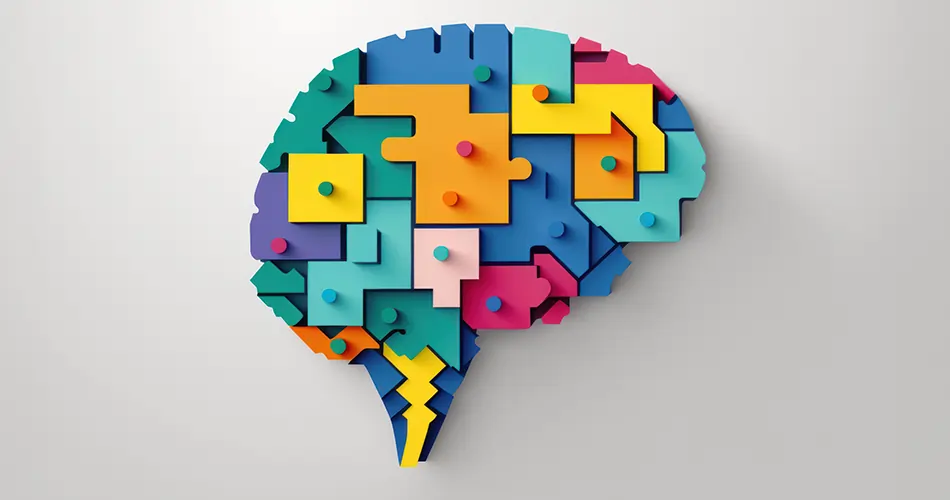Hey there! Have you ever wondered if those brain training apps and games actually work? I know I have. It’s so tempting to believe that spending a few minutes each day solving puzzles or playing memory games can boost our brainpower and improve cognitive function. But is it really true, or is it just a clever marketing trick? In this post, we’re going to dive deep into the world of brain training and brain games to uncover the truth behind their effectiveness. So, if you’ve been curious about whether these activities can truly enhance your mental abilities, stick around because we’re about to find out together!
Unlock Your Cognitive Potential with These Bestselling Brain Training Programs



What is Brain Training?
In today’s fast-paced world, it’s important to keep our brains sharp and functioning at their best. This is where brain training comes in. Brain training involves engaging in activities or exercises that are specifically designed to improve cognitive functions and enhance overall brain performance. It is a systematic approach to improving brain health and functioning.



How Brain Training Differs from Brain Games
While brain games and brain training may seem similar, they are actually quite different. Brain games are fun and entertaining activities that may provide some mental stimulation, but they are not specifically designed to target and improve cognitive functions. On the other hand, brain training programs are carefully crafted to challenge and exercise specific cognitive abilities, such as memory, attention, problem-solving, and processing speed.
Benefits of Brain Training
Improved Memory
One of the key benefits of brain training is improved memory. By engaging in memory exercises and techniques, individuals can enhance their ability to remember and recall information. This can be especially beneficial for students, professionals, and older adults who want to maintain their cognitive abilities.
Enhanced Attention and Focus
In our increasingly distracting world, being able to focus and concentrate is becoming more challenging. Brain training exercises can help individuals improve their attention and focus by teaching them strategies to block out distractions and stay on task. This can lead to increased productivity and better overall performance in various aspects of life.
Increased Problem-Solving Skills
Problem-solving is a critical cognitive ability that is necessary in many areas of life, such as work, relationships, and daily tasks. Brain training can help individuals develop and enhance their problem-solving skills by providing them with opportunities to practice logical thinking, creativity, and decision-making.
Faster Processing Speed
Processing speed refers to the ability to quickly and efficiently process information. A faster processing speed can lead to improved performance in tasks that require quick thinking and decision-making, such as driving or playing sports. Brain training exercises that focus on processing speed can help individuals become more efficient and agile in their thinking.
Choosing the Right Brain Training Program
When it comes to brain training, there are a plethora of options available in the market. Here are some important factors to consider when choosing the right brain training program:
- Scientific Backing: Look for programs that have been developed based on scientific research and have been proven effective in improving cognitive functions.
- Adaptivity: A good brain training program should adapt to your individual needs and progress, providing personalized challenges to keep you engaged and motivated.
- Variety: Look for programs that offer a variety of exercises and activities to target different cognitive abilities. This ensures a well-rounded brain training experience.
- Accessibility: Consider the platform or device on which the brain training program is available. Choose a program that suits your preferences and lifestyle, whether it’s a mobile app, online platform, or physical game.
What are Brain Games?
Brain games have gained popularity in recent years as a way to improve cognitive abilities and keep the mind sharp. These games are usually computer or mobile-based and claim to enhance skills such as memory, attention, and problem-solving. However, it’s important to understand the distinction between brain games and brain training.



Brain Games vs. Brain Training
While both brain games and brain training aim to improve cognitive abilities, they differ in their approach and effectiveness. Brain games are often designed to be entertaining and engaging, with colorful graphics, catchy music, and addictive gameplay. They are created to captivate the user’s attention and provide a fun experience.
On the other hand, brain training programs are more focused and structured. They typically involve a series of exercises and tasks specifically designed to target and enhance specific cognitive skills. These programs are developed based on scientific research and often provide personalized training plans to address individual needs.
The Limitations of Brain Games
As appealing as brain games may be, it’s important to note their limitations. Here are a few key points to consider:
- Lack of targeted training: Brain games are generally not designed to provide targeted training for specific cognitive skills. While they may improve overall cognitive performance to some extent, they may not effectively address specific areas of weakness.
- Transferability to real-life tasks: Although brain games may improve cognitive abilities within the game itself, the extent to which these improvements transfer to real-life tasks is still under debate. It’s crucial to consider whether the skills developed in the game can be applied to real-world situations.
- Sustainability: Playing brain games sporadically may not lead to long-term cognitive improvements. Like any skill, consistent practice is essential for progress. Brain training programs often provide structure and guidance to ensure regular and sustained practice.
The Benefits of Brain Training
Brain training programs offer several advantages compared to brain games. Here are some key benefits to consider:
- Targeted training: Brain training programs are designed to provide targeted training for specific cognitive skills. Whether it’s memory, attention, or problem-solving, these programs focus on improving specific areas of weakness.
- Personalized plans: Many brain training programs offer personalized training plans based on individual needs and goals. These plans are tailored to address specific cognitive challenges and provide a customized training experience.
- Scientifically backed: Brain training programs are often developed based on scientific research and evidence. They incorporate proven strategies and techniques to enhance cognitive abilities effectively.
- Long-term results: Regular and sustained training with a brain training program can lead to long-term cognitive improvements. By consistently challenging and exercising the brain, individuals can experience lasting benefits in their cognitive abilities.
Pros and Cons of Brain Training
In today’s fast-paced world, where our brains are constantly bombarded with information and distractions, the idea of improving our cognitive abilities through brain training has gained significant popularity. Brain training refers to a variety of exercises and activities designed to enhance memory, focus, and mental flexibility. While there are certainly benefits to be gained from engaging in brain training, it is also important to consider the potential limitations and drawbacks. In this blog section, we will explore the pros and cons of brain training to help you make an informed decision.
Pros of Brain Training
Improved Memory
One of the primary advantages of brain training is its potential to improve memory. Through exercises that challenge your memory recall and retention, brain training can help strengthen your ability to remember important information. For example, Lumosity, a popular brain training app, offers memory games that require you to remember and recall sequences of numbers or patterns. By consistently practicing these exercises, you can sharpen your memory skills and potentially enhance your overall cognitive function.
Increased Focus
Another benefit of brain training is the potential to boost your focus and concentration. Many brain training programs incorporate activities that require sustained attention and mental effort. For instance, the app Focus@Will offers curated playlists of instrumental music, specifically designed to improve focus. By regularly engaging in these activities, you can train your brain to better filter out distractions and maintain a higher level of focus in your daily life.
Enhanced Mental Flexibility
Brain training exercises often involve tasks that require you to think outside the box, find creative solutions, and adapt to new situations. This can help improve your mental flexibility, which is the ability to switch between different concepts or perspectives. For example, the game “Elevate” offers a range of challenges that aim to enhance mental agility and problem-solving skills. By participating in such brain training activities, you can develop a more adaptable and versatile mind.
Cons of Brain Training
Consistent Practice Required
One limitation of brain training is that it requires consistent practice to see long-term benefits. Just like physical exercise, the effects of brain training are not instantaneous. It takes time and dedication to build cognitive skills and see significant improvements. This means that if you are not committed to regular brain training sessions, you may not experience the desired results. It’s important to set aside dedicated time for brain training and make it a part of your daily routine to maximize its effectiveness.
Lack of Scientific Evidence
While there is anecdotal evidence supporting the benefits of brain training, the scientific community is still divided on its efficacy. Some studies have shown positive results, while others have failed to find significant improvements beyond task-specific abilities. It’s essential to approach brain training with a critical mindset and not solely rely on marketing claims or testimonials. Look for well-designed studies and reputable sources that provide evidence for the effectiveness of specific brain training programs.
The Pros and Cons of Brain Games
Brain games have gained popularity in recent years as a way to improve cognitive function and keep our brains sharp. These games offer a range of mental challenges and exercises that claim to enhance memory, attention, and problem-solving skills. In this article, we will explore the pros and cons of brain games, so you can make an informed decision about whether they are right for you.
Pros
- Entertainment Value: Brain games can be a fun and engaging way to spend your time. They offer enjoyable activities that can be addicting, providing hours of entertainment.
- Accessibility: Brain games are available in various formats, including mobile apps, online platforms, and even physical puzzles. This accessibility allows users to play these games whenever they want, whether they are at home or on the go.
- Cognitive Stimulation: Engaging in brain games can stimulate various cognitive abilities, such as memory, attention, and problem-solving skills. Regularly challenging your brain with these games may help improve these abilities over time.
- Diverse Options: There is a wide range of brain games available, catering to different preferences and interests. Whether you enjoy math puzzles, word games, or visual challenges, you can find a game that suits your taste.
- Social Interaction: Some brain games offer multiplayer options, allowing you to compete or collaborate with friends and family. This social aspect adds an extra layer of enjoyment and can make the experience more engaging.
Cons
- Lack of Personalized Training: Brain games generally offer a one-size-fits-all approach to cognitive training. They may not take into account your specific cognitive strengths and weaknesses, limiting their effectiveness for personalized improvement.
- Limited Transferable Skills: While brain games can help improve specific cognitive abilities, their impact on real-life tasks and skills may be limited. The skills gained from playing a specific game may not easily translate into improved performance in daily activities or academic settings.
- Risk of Over-Reliance: It is important to keep in mind that brain games should not be the sole means of cognitive stimulation. Over-relying on these games for cognitive improvement may neglect other important factors, such as physical exercise, social interaction, and healthy lifestyle choices.
- Questionable Claims: The market for brain games is vast, and not all claims about their benefits are backed by scientific evidence. Some games may make exaggerated claims about their ability to improve memory or intelligence. It is important to approach these claims with a critical mindset and do thorough research before investing in a particular game or program.
Unveiling the verdict: Which is better for your brain?
In conclusion, it is crucial to carefully consider your goals and preferences when choosing between brain training and brain games. Scientific evidence supports the effectiveness of structured brain training exercises in improving cognitive function. However, the enjoyable nature of brain games should not be overlooked, as they can provide a fun and stimulating way to challenge your brain. For optimal cognitive enhancement, I recommend a balanced approach that incorporates both structured brain training and occasional brain games. This way, you can enjoy the journey while also reaping the benefits of improved cognitive abilities.











Brain games can be a fun way to challenge yourself and keep your mind sharp.
I believe that a combination of brain training and brain games can be beneficial for overall cognitive health.
I think it’s important to approach brain training and brain games as part of a balanced lifestyle that includes physical exercise and healthy habits.
I think it’s important to clarify the goals of brain training and brain games. Are they meant to improve cognitive abilities or just for entertainment?
It would be great to see some scientific studies comparing the effectiveness of brain training and brain games.
Are there any specific brain training techniques that have been proven to be more effective than others?
Interesting article! I’ve always wondered about the difference between brain training and brain games.
It would be interesting to know if brain training or brain games have any impact on overall well-being and mental health.
I’m curious to know if there are any age-specific recommendations for brain training and brain games.
I’ve tried a few brain training apps before and found them helpful for improving my focus and memory.
Some brain training programs claim to prevent cognitive decline. I wonder if there’s any evidence to support these claims.
I’ve heard that brain training can also help with decision-making and problem-solving skills. Is that true?
Brain games can be addictive, but I’m not sure if they actually have any long-term benefits.
Has anyone personally noticed any improvements in their cognitive abilities after doing brain training or playing brain games?